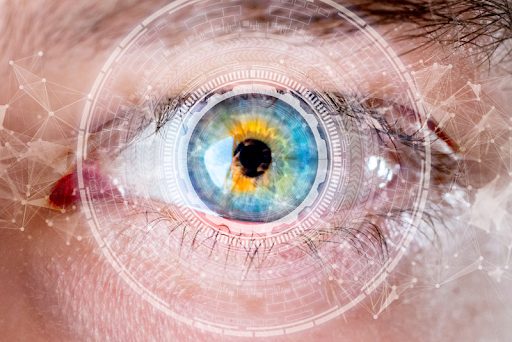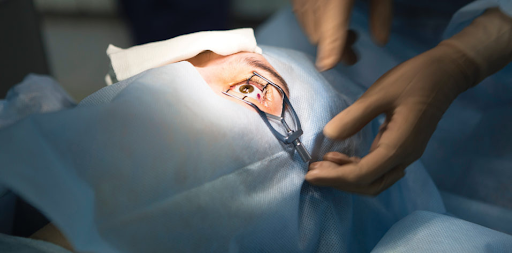
Introduction
Your eye doctor will perform a complete baseline evaluation to see if you are a good candidate for LASIK surgery before deciding whether or not to have the treatment. Inform your doctor of all prescription and over-the-counter medications you are taking and any current or former eye or medical issues. Make careful to indicate if you have a drug allergy as well. After an extensive eye exam, talk to your doctor about whether you would be a good candidate for surgery. Discuss the pros, cons, and any surgical alternatives with your doctor. Find out what to expect before, during, and following surgery. Do not feel under any pressure to decide whether to have surgery from your surgeon, your friends, your family, or anyone else. Before you sign an informed consent form, carefully balance the advantages and disadvantages.
Use no creams, lotions, perfume, or makeup the day before your procedure. These items may interfere with the laser and raise the possibility of infection during and after surgery. Before surgery, a surgeon might instruct you to scrub your eyelashes well to eliminate any residue or debris. If you wear contacts, stop wearing them before the exam and start wearing glasses all the time instead. It may compromise the procedure’s success if your cornea assumes its natural shape after the inspection, which could lead to erroneous measurements.
Stop using contacts before having LASIK
Contact lens users may find it particularly difficult to prepare for LASIK. Before having LASIK surgery by https://www.visualaidscentre.com/lasik-surgery-in-south-delhi/, you will be requested to refrain from wearing contact lenses. The material will determine how long you must be without contacts. Depending on their substance, you might need to take a while off contacts. If you wear soft lenses, you must stop using your contacts for 5 to 7 days before your pre-operative checkup and surgery. You will need to take 10 to 14 days off from wearing toric lenses, which are used to treat astigmatism. During your initial consultation, the specific amount of time you must avoid wearing other specialty lenses before doctors explain the surgery to you. Why it is necessary to quit using contacts before having LASIK is a common question. That is a reasonable query! The cornea, the upper surface of your eye, can be altered by contact lenses, and corneal measurements are essential in LASIK calculations.
Since contact lenses are comprised of foreign material, they shouldn’t be in contact with your body in the first place. Your body and eyes use inflammation as a defense mechanism against infections, which is stimulated by this to produce an immunological response. Contact lenses may cause very little inflammation and no symptoms, or they may cause quite a bit of inflammation and many symptoms, which can be painful. It is crucial to get rid of any inflammation before your consultation, regardless of how much there is, to ensure that our evaluation process is accurate. It is crucial to ensure a normal healing process and the best possible results before having LASIK. Bacteria and other contagious organisms can grow in tiny contact lenses.
So, just as with any medical process, we want to reduce the danger of infection, and this is another justification for not wearing contacts for a while before LASIK.
Why Is It Significant To Stop Wearing Contacts Before LASIK?
The amount of oxygen that enters the cornea, the clear front surface of the eye, is reduced by even the cleanest, most comfortable contact lenses. It might result in corneal edema, compromising the accuracy of your eyes’ crucial measurements before LASIK surgery. Wearing contacts can also alter the tear film, leading to dry eyes, and it can interfere with the recovery of the cornea after LASIK surgery. Certain surgeons may have different preferences regarding when you should stop wearing contact lenses before LASIK surgery. But generally speaking, most surgeons advise against using soft contact lenses two weeks or more before surgery.
Do contacts fit well before LASIK eye surgery? The quick response is no. It is recommended to avoid wearing lenses following your consultation in the days coming up to your dilated pre-op exam and surgery. Your cornea will be able to return to its most natural form as a result. Regardless of how carefully you maintain your contact lenses, they might still harbor bacteria. Another reason to avoid contact lenses prior to LASIK is the possibility that the bacteria could raise the risk of infection. “Can you use contact lenses after LASIK eye surgery?” Not advised in the post-surgery time.
They can hold bacteria that could prevent healing and drying. Hopefully, you won’t require them after you’ve fully recovered. If you do, wearing them is typically trouble-free. But you’ll need a new prescription and a fitting.
Do you need glasses to wear before LASIK?
Do you need to wear glasses if you don’t wear contacts before LASIK? Your prescription and how reliant you are on corrective glasses will determine this. It can be difficult to avoid contact lenses before your LASIK consultation if you have a high prescription. However, you must be able to function properly in the weeks before your surgery if you are not using contacts. If you require new glasses, make sure to order them.
Conclusion
Hopefully, you feel more at ease about getting ready for eye surgery. There are only a few preparations to make before laser eye surgery. However, have a little meal before going. I was wondering if I may eat before my LASIK procedure. You may! Contrary to many procedures where you receive a general anesthetic, this does not. Food can also assist your body in processing the painkillers that are administered right after surgery to help with discomfort management.
Make arrangements for getting to and from the operation center before your procedure. Your eyesight will be cloudy just after surgery, so it’s critical to keep your eyes closed to speed up recovery. Additionally, your doctor might give you a sedative that will make it difficult for you to drive, so be sure you have a trustworthy companion who can transport you home.









